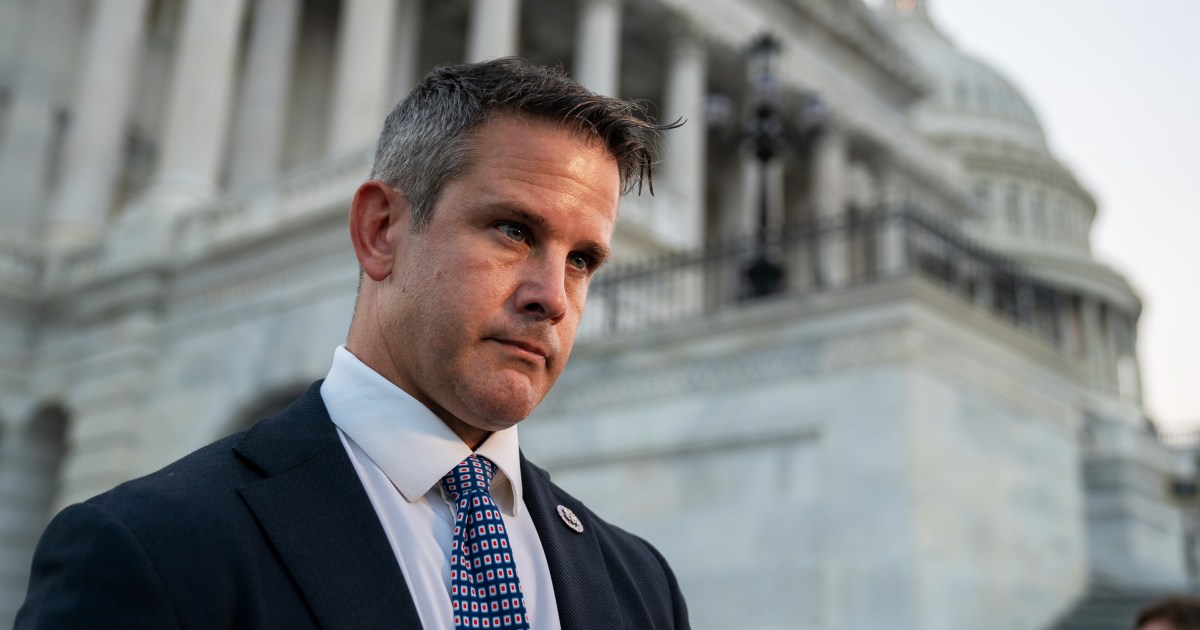In the aftermath of last week’s mass shooting in Uvalde, among the many questions was whether the bloodshed might lead some Republican policymakers to change their minds about gun policy. It was not a passing curiosity: If the heartbreak didn’t affect GOP officials’ attitudes, then the status quo would remain in place, again, even in the wake of the latest school massacre.
Would any Republicans reconsider their opposition to gun restrictions? The good news for reformers is, there has been some movement. The bad news is, the total number of GOP elected officials rethinking their positions is quite small.
As NBC News reported, the first apparent breakthrough came from Buffalo’s Republican congressman.
Congressman Chris Jacobs (R-NY), who was endorsed by the National Rifle Association in 2020, said he would support a ban on assault weapons following two horrific mass shootings at a grocery store in New York and an elementary school in Texas. Jacobs made the remarks — a contradiction to the Republican party’s staunch stance on gun laws — during a news conference on Friday.
According to a Buffalo News report, the New York lawmaker, not quite two years into his congressional tenure, said, “If an assault weapons ban bill came to the floor that would ban something like an AR-15, I would vote for it. So I want to be clear: I would vote for it.”
Jacobs, who was endorsed by the NRA in 2020, added that he’s also prepared to raise the age minimum for some gun purchases to 21. “Individuals cannot buy beer, they cannot get cigarettes until 21. I think it’s perfectly reasonable that the age limit at least for these highly lethal, high-capacity, semi-automatic weapons should be 21,” he said.
Two days later, Republican Rep. Adam Kinzinger, who used to enjoy an “A” rating from the NRA, told ABC News that “raising the age of gun purchase to 21 is a no-brainer.”
In a CNN interview the same morning, the Illinois congressman — who isn’t seeking re-election this year — also suggested he was re-thinking his position on assault weapons as part of a larger conversation about “reasonable” solutions to gun violence.
“My side’s not doing that. My side’s not coming forward with reasonable ways to defend an amendment that we think is very important,” Kinzinger said. “And so I’m looking at this going, fine, if people are going to put forward solutions about certifying maybe who can buy an assault weapon, I’m certainly open to that.”
At face value, this offers at least some encouragement. These GOP congressmen, previously known for being aligned with the NRA, saw the latest slayings and decided to reconsider some of their earlier assumptions. It’s evidence that some Republican officials are at least capable of change in the face of overwhelming evidence.
But it’s also not much: There are 208 Republicans in the U.S. House. The fact that two of them started evolving in the aftermath of brutal massacres is, to put it mildly, underwhelming.
It’s also likely to be inconsequential. With a Democratic majority in the House, good bills related to gun violence are already able to pass. In fact, two such proposals passed last year.
As is usually the case, the real action is in the Senate, where nothing will pass without the support of at least 10 Republican members. It was against this backdrop that President Joe Biden told reporters yesterday afternoon, in response to a question about whether GOP senators might be serious about governing on the issue, “Look, I don’t know, but I think there’s a realization on the part of rational Republicans — and I think Senator McConnell is a rational Republican; I think Cornyn is as well. I think there’s a recognition in their part that we can’t continue like this.”
It’s difficult to share the president’s optimism. The Washington Post over the weekend took a detailed look at Senate Minority Leader Mitch McConnell’s “decades-long effort to block gun control,” and the degree to which the Kentucky Republican “has spent his career working to delay, obstruct or prevent most major firearms restrictions from being approved by Congress.”
The same day, Republican Sen. John Cornyn of Texas made an odd comment about the number of doors at airports, as part of an equally odd conversation about limiting entry points to schools.
If this GOP pair constitutes the party’s “rational” wing on possible gun reforms, it’s probably best to keep expectations low.

